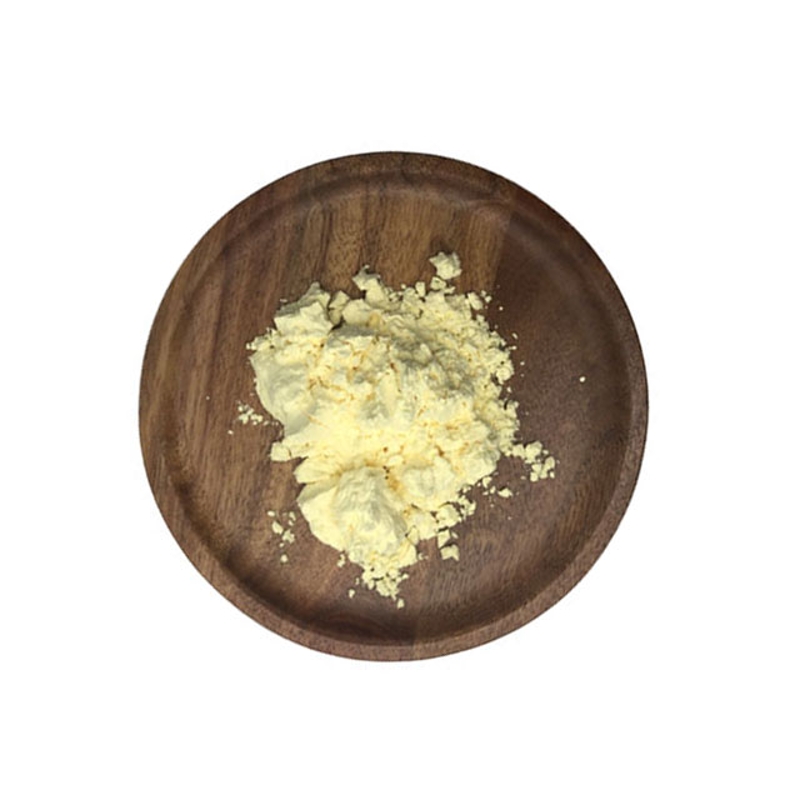-
Categories
-
Pharmaceutical Intermediates
-
Active Pharmaceutical Ingredients
-
Food Additives
- Industrial Coatings
- Agrochemicals
- Dyes and Pigments
- Surfactant
- Flavors and Fragrances
- Chemical Reagents
- Catalyst and Auxiliary
- Natural Products
- Inorganic Chemistry
-
Organic Chemistry
-
Biochemical Engineering
- Analytical Chemistry
- Cosmetic Ingredient
-
Pharmaceutical Intermediates
Promotion
ECHEMI Mall
Wholesale
Weekly Price
Exhibition
News
-
Trade Service
Several queue studies have found that low circulatory vitamin D levels are associated with an increased risk of active MRI lesions and recurrence of multiple sclerosis (RRMS).
, however, the randomized controlled supplementation tests were negative at the primary endpoint, while the secondary MRI endpoint showed anti-inflammatory effects.
of the nerve filament light chain (NfL) in the cycle is a biomarker of disease activity in RRMS.
study looked at whether high doses of vitamin D3 supplements at 48 weeks were associated with lower circulating NfL levels.
included 40 RRRMS participants in the SOLAR trial who received the Dutch interferon beta therapy, obtaining baseline and 48-week follow-up plasma samples.
, 24 of these participants were supplemented with 14,000 IU/d vitamin D3 and 16 with a placebo.
using LC-MS/MS to measure 25 hydroxyvitamin D3 (25(OH)D3) levels and Simoa to measure NfL levels.
results showed an increase in serum 25(OH)D3 levels in participants in the vitamin D3 group at 48 weeks compared to the placebo group (the mid-level 281 (IQR 205-330) vs 72 (39-88) nmol/L;
there was no difference in NfL levels between treatment groups at 48 weeks (mid-level 25.4 (IQR 19.6-32.2) vs 25.3 (17.9-30.1) pg/mL; P . . . . . . . . . . . . . . . . . . . . . . . . . . . . . . . . . . . . . . . . . . . . . . . . . . . . . . . . . . . . . . . . . . . . . . . . . . . . . . . . . . . . . . . . . . . . . . . . . . . . . . . . . . . . . . . . . . . . . . . . . . . . . . . . . . . . . . . . . . . . . . . . . . . . . . . . . . . .
in the 48th week MRI scan, higher NfL levels at week 48 were associated with a higher risk of combining unique active lesions (for every 10 pg/mL increase, OR 2.39 (95% CI 0.93-6.12) ;P . . . . . . . . . . . . . . . . . . . . . . . . . . . . . . . . . . . . . . . . . . . . . . . . . . . . . . . . . . . . . . . . . . . . . . . . . . . . . . . . . . . . . . . . . . . . . . . . . . . . . . . . . . . . . . . . . . . . . . . . . . . . . . . . . . . . . . . . . . . . . . . . . . . . . . . . . . . . . . . .
, the results showed that 48 weeks of high-dose vitamin D3 supplementation was not associated with a decrease in NfL levels.
study does not support the role of vitamin D3 in biomarkers of this neural axon injury.
.







